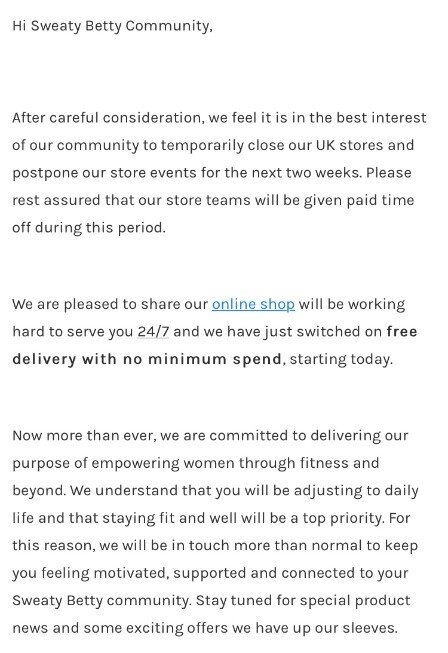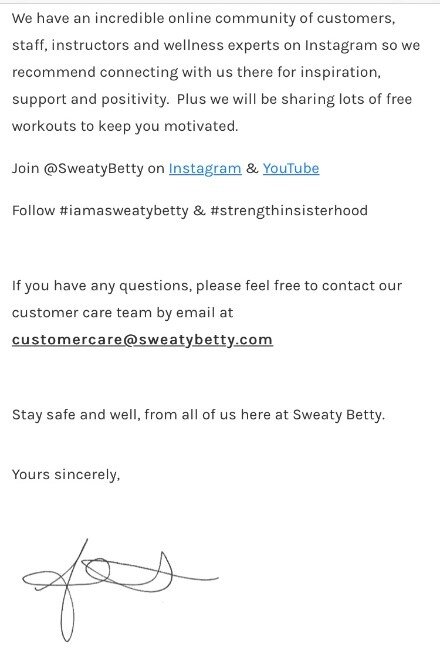In these far from normal times we are all having to adapt and so, of course, are businesses. Conversations with clients suggests there is a concern that responsible business isn’t top of the agenda right now. But in fact, now is the time for responsibility more than ever. It’s easy to do good deeds in the good times, but it is when people are under pressure that your actions will leave a lasting impact on customers, employees and the wider public. So how do you get your communications right in such turbulent times? We need to focus on:
- Proactive communications – your customers and employees need to hear from you – early, often and directly has long been an effective mantra. You need to update regularly, with clear information and advice that is relevant for them. They may also be getting this information from elsewhere (we have all been bombarded with company updates), but this shouldn’t preclude you from providing it via a range of appropriate channels to those closest to your brand.
- Being honest about what’s possible – this is a very fast-moving situation and the repercussions of any communications needs to be thought through as much as possible. Over the weekend, Domino’s pizza offered a key worker pizza deal and were quickly overwhelmed. They had to issue an apology, but it was full and fair. We also saw The National Trust trying to do the right thing, but being caught out by the speed of change – on Wednesday of last week it felt right to open up their grounds and green spaces, but by Saturday it was inappropriate and the offer had to be retracted. These examples show us why the actions must lead the comms, rather than vice versa.
- Don’t overclaim – you don’t need to have all the answers. If you are a travel agent, you are not expected to be a scientific expert. But it is key to point customers and employees to true experts and reliable sources of the latest information. Several café and restaurant chains offered free/discounted food and drinks for NHS workers before they had to close; this Pret promotion was nicely done and in keeping with their overall philosophy.
Some further examples show the importance of comms in the current environment. Firstly, a joint letter from the supermarkets asking everyone to only buy what they need has been widely shared. In a sector known for cut-throat competition, it is an important signal that brands are pulling together for the national good. It is clear, reassuring and factual and being shared across all channels for maximum effectiveness.
Another interesting example from a smaller company is the customer email that came out from Sweaty Betty, the high-end women’s workout clothing brand.
It’s effective for several reasons, including the three elements highlighted above: it was proactive, it is honest in that it feels like a well thought out response to the current situation, it avoids overclaiming, and furthermore it is true to the brand – it dials up the community spirit which has long been a key part of the Sweaty Betty brand. It also, vitally, reassures customers that staff are being looked after, which is a clear sign of a responsible business. Finally, it is light in its touch, with some positive ideas and (free) suggestions for working out at home. Throw in free delivery and it’s a very effective piece of comms.
While the current situation is clearly very serious, raising a smile can help too – and the neat rebranding of TimeOut to – you guessed it – TimeIn is very effective here.
One can also see why KFC decided now is not the time for a campaign that encourages us to lick our fingers while eating – times are not ‘finger lickin’ good’ right now.
So, while we are all wrestling with great uncertainty and nervousness about what is to come, we can hopefully take comfort that this current crisis is bringing out the responsible side not just in many individuals and communities but in many companies too.






